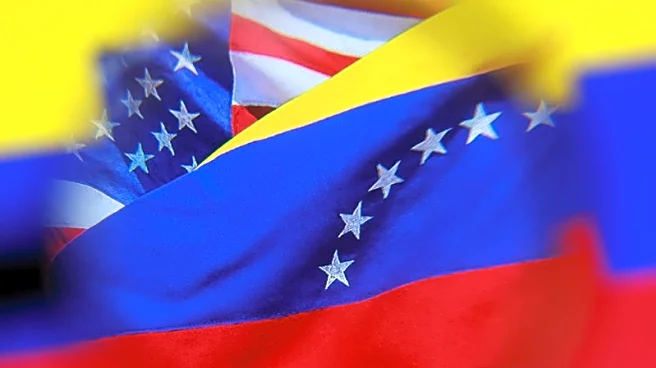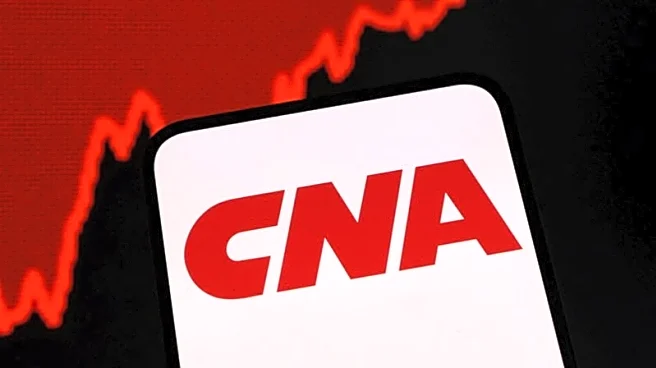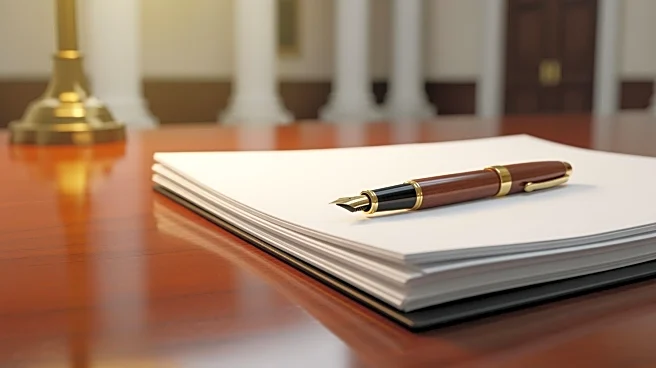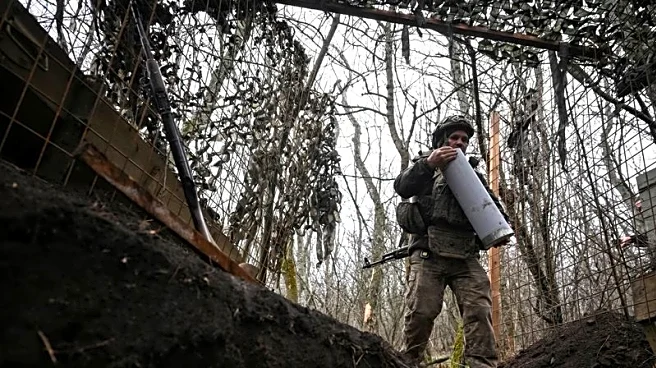What is the story about?
What's Happening?
The United Nations Security Council has decided not to lift sanctions on Iran, following a vote on a draft resolution. The decision comes after Britain, France, and Germany initiated a process to reimpose sanctions, citing Iran's non-compliance with the 2015 nuclear deal aimed at preventing nuclear weapon development. Iran denies these allegations. The vote saw Russia, China, Pakistan, and Algeria supporting the draft, while nine members opposed it and two abstained. Despite the outcome, diplomatic efforts continue, with Britain, France, and Germany offering to delay reinstating sanctions for up to six months if Iran meets certain conditions, including restoring access for UN nuclear inspectors and engaging in talks with the United States.
Why It's Important?
The decision to maintain sanctions on Iran holds significant implications for international diplomacy and nuclear non-proliferation efforts. The sanctions include restrictions on arms sales and nuclear technology, impacting Iran's economy and its ability to engage in international trade. The ongoing diplomatic negotiations highlight the complexities of international relations and the challenges in reaching consensus among global powers. The outcome of these talks could influence future diplomatic strategies and the stability of the Middle East region, affecting global security and economic interests.
What's Next?
Diplomatic negotiations are expected to intensify in the coming days, with Iran's Foreign Minister Abbas Araqchi scheduled to meet European counterparts in New York. The Security Council may consider a resolution to delay sanctions if Iran complies with the conditions set by Britain, France, and Germany. The deadline for reaching an agreement is September 27, after which all UN sanctions will be reinstated if no deal is reached. The United States has expressed readiness for dialogue, indicating potential for future diplomatic engagement.
Beyond the Headlines
The divided vote in the Security Council reflects broader geopolitical tensions and differing approaches to handling Iran's nuclear ambitions. The involvement of major powers like Russia and China, who oppose the reimposition of sanctions, underscores the strategic alliances and interests at play. The situation raises questions about the effectiveness of international agreements and the role of diplomacy in resolving complex global issues.
















